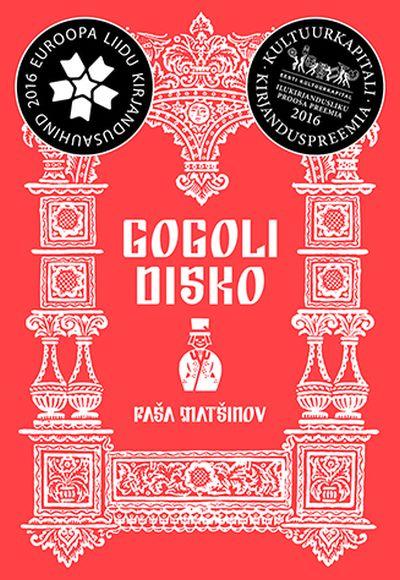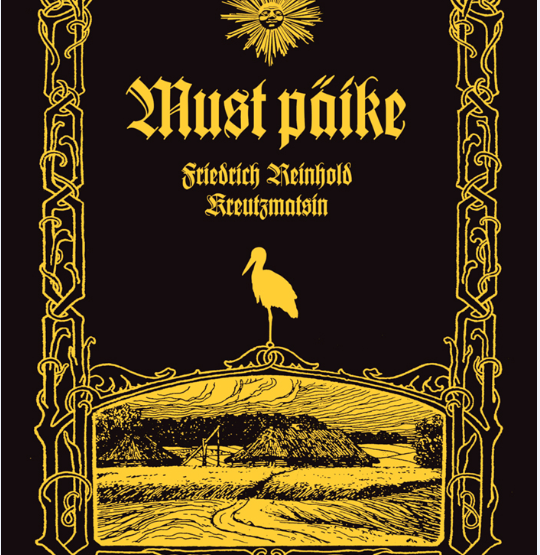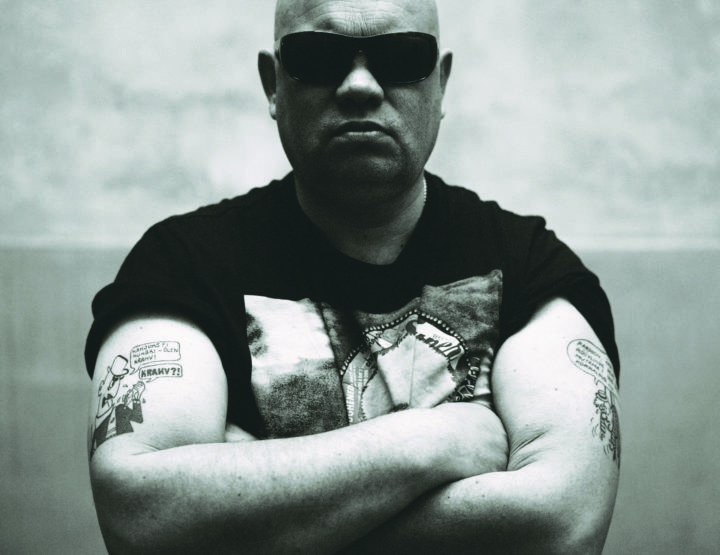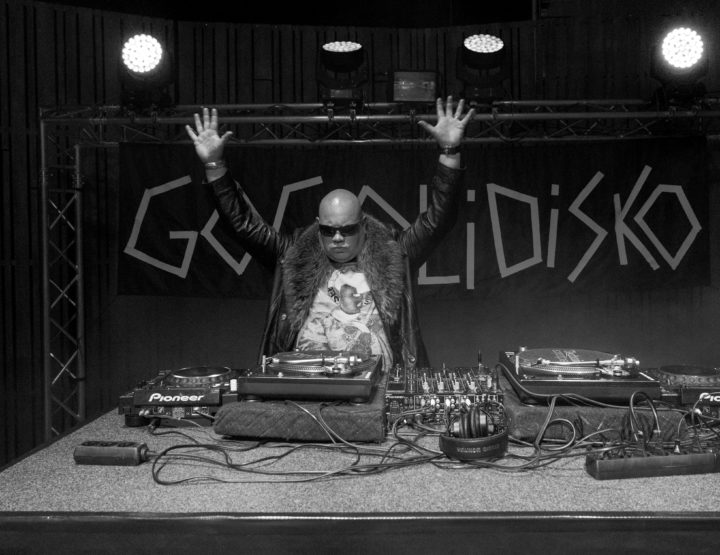Paavo Matsin, Gogoli disko (The Gogol Disco)
Viljandi, Lepp ja Nagel, 2015. 144 pp.
ISBN: 9789949386918
Paavo Matsin (b 1970) is an instructor and critic whose literary activity began in the experimental group “14NÜ”, which focused on expanding the possibilities of literary form – starting with the unusual design and topics of the books that members published, and up to colourful book releases that could be better classified as performances. Matsin’s “solo career” has likewise been characterised by experimentalism and a playful approach. When his first work was published in 2011 – Doktor Schwarz. Alkeemia 12 võtit (Doctor Schwarz. The Twelve Keys to Alchemy) – it was seen as his first proper attempt to unite two extremes: experimental writing style and traditional storytelling. However, it turned out that the former shrouded the latter, and so Matsin’s debut received just as many enthralled reactions as it did sceptical ones. His Sinine kaardivägi (The Blue Guard, 2013), an adventure tale set in Riga, nevertheless proved that Matsin is not simply a gleeful eccentric. In his third novel, Gogol’s Disco, the author finds a stable balance between literary games and skilled storytelling.
Gogol’s Disco is undoubtedly Matsin’s strongest work to date. His characteristically cryptic, erratic plot-style and intertextuality insurmountable for a layman has receded – though not at all disappeared! The strengths of Matsin’s energetic inner world are amplified in Gogol’s Disco: a bizarre, dream-like atmosphere populated with colourful characters and absurd situations. Absorbing influences from history, alchemy, mysticism, and literature, Matsin has started writing ever more clearly while not losing his ability to create a simultaneously magical and grotesque world – one, which just can’t seem to submit to classification by genre.
Gogol’s Disco depicts a near-future (or a parallel existence), in which Imperial Russia has put an end to Estonian independence, and Estonians have become a scant minority in their own homeland. Yet the work does not focus on national apocalypse, but rather on how the Russian literary classic Nikolai Gogol (who has risen from the dead) goes to visit the pastoral town of Viljandi in Southern Estonia, where he brings local intellectualism to a rolling boil and, in some instances, flips it upside-down. It should be added that Gogol – in whose depiction the author channelled inspiration from Jesus, Woland, and even Golem – is not the work’s main character. On centre-stage is Viljandi’s harlequin community of mainly Russian-speaking intellectuals and miscreants, whose already odd lives intersect with that of the parable-speaking Golem-Gogol and are changed forever. For lack of better words, Gogol’s Disco can be called a romping dystopia or allegorical grotesqueness. A book, which is both anti-utopian and its parody at once. In any case, Matsin’s spiralling fantasy leaves most Estonian science-fiction writers standing with both feet on solid ground.
An undoubtable added gem in Gogol’s Disco is Matsin’s rendering of Viljandi, a town nestled between the hills of Southern Estonia, which is blessed in the book with views that resemble Norway much more than Estonia. Matsin makes the town a simultaneously modern and backwater place, although his descriptions of certain sites are sources of happy recognition for readers familiar with Viljandi. The authenticity of the book’s social circumstances and the incredibility of its events stand as basis to classify it as magical realism, but the images Matsin conjures are too restless to be limited by such a designation; the sense of liberty bursting from his books too strong.
By combining his sense of humour, absurdity, and erudition, Matsin has created an original and liberating vision that isn’t missing a little moral: even when situations or conditions change drastically, life tends to go on.
Jan Kaus (1971) is a writer and musician. He has published five novels, and has also authored poetry, essays, novellas and miniatures. In 2015, Kaus’ novel Mina olen elus (I Am Alive) and miniature collection Tallinna kaart (A Map of Tallinn) won the Cultural Endowment of Estonia’s Award for Prose.





